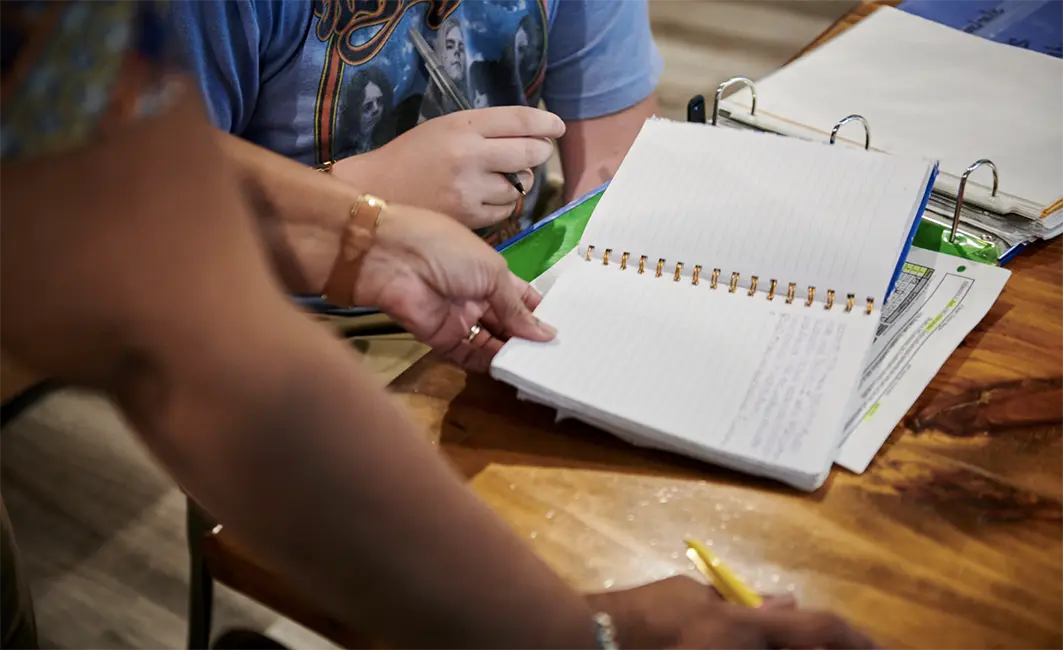Volunteers are critical to many organizations and their ability to fulfill their mission. They bring extra sets of hands to understaffed nonprofits that can make the seemingly impossible become an amazing reality. In turn, volunteers gain invaluable experience, insight and opportunity, plus the satisfaction of knowing they’ve made a real difference in the world.
At Arc of Acadiana, our volunteers become uniquely involved in the growth of our client’s skills through educational and enriching experiences. Whether it’s playing music, teaching gardening skills or providing nutrition education, for example, our volunteers offer their skills to further educate and engage our individuals.
No matter the nonprofit volunteer opportunity, the qualities of a great volunteer tend to remain the same.
1. Passion and Commitment
Great volunteers have passion and a deep and genuine belief in the worth of what they’re trying to accomplish. That’s why volunteering to do something that truly interests you or matters to you is so important. It’s the key to the thing all philanthropists want to know—how to be a great volunteer. That belief in what you’re doing yields a self-fulfilling reward because when you’re doing what you love, you love what you’re doing. You become a part of something larger than yourself, and that commitment to others brings a sense of purpose and belonging—something we all need and seek.
2. Reliability and Accountability
When you know that you can count on someone to show up and do their best, that’s reliability. People who are willing to step up hold themselves accountable. They take responsibility for their actions because they realize that what they do affects the lives and jobs of others. If they say they’ll do something, they do it. More, they realize that things don’t always go to plan, and they own their mistakes and failures as well as their successes.
3. Adaptability and Flexibility
Every volunteer brings with them talents and skills that offer opportunities to help build, strengthen or enhance a program. Since volunteers often help in any number of roles in diverse settings, conditions can change from occasion to occasion or even from moment to moment. Great volunteers are willing to serve wherever, and however they’re needed.
4. Empathy and Compassion
Empathy is the ability to connect with others by understanding at a personal level how they might feel about, think about or view a certain situation. It’s the ability to relate to others and their experiences authentically, without judgment. Empathy often stirs deep emotion within us, and the resulting urge to help in some way is what compassion is all about. Apply those concepts to a volunteer scenario, and you’ll rapidly see why individuals who genuinely want to understand and help others are so highly valued. Empathy and compassion are the foundation of kindness and respect for others regardless of background or identity and the genuine desire to make a positive impact in other people’s lives.
5. Communication and Understanding
Strong communication skills rely on dual skill sets—the ability to take in information accurately and the ability to share information appropriately.
- Great volunteers are committed to using all of their senses to listen, observe and understand what they’re seeing, being told or experiencing. They’re thoughtful, carefully considering the implications of what they’re perceiving or how a set of instructions, for example, applies to what they do. More, they ask questions when they’re not sure if they understand.
- Great volunteers know they also have a responsibility to share their knowledge truthfully and accurately and to express themselves in positive ways to their audience—whoever that may be.
Both receiving information and expressing information must work on multiple levels. Volunteers must be able to communicate constructively not only with various levels of staff working within an organization and other volunteers but also with the people they’re trying to help.
6. Problem-Solving and Initiative
Volunteers have the ability to bring unique perspectives and solutions to an organization. A critical part of problem-solving and initiative—and communication and understanding—is the willingness to ask questions. Great volunteers don’t hide their talents but offer their full potential.
7. Resilience and Perseverance
Becoming proficient at tasks and procedures takes time. While some experts say that mastering a skill takes 10,000 hours, others argue for a mere 20 hours. The point is, however, that confident expertise is rarely immediate. In the timeframe between novice and expert lie learning experiences fraught with mistakes, misunderstandings, imperfections and failures. Volunteers may encounter initial resistance to their ideas, or an accepted practice may not seem the best option to fresh eyes. Understanding why or how things are done the way they are may take time. Being able to bounce back from disappointment and just keep trying will eventually bring mastery and acceptance as part of the team.
8. Continuous Learning and Growth
As they gain knowledge and skill, great volunteers look for opportunities to take on more responsibility or try new things. They understand that each new experience allows them to understand more of the organization and see how all of the parts work together to serve the mission. In some organizations, volunteers may be able to take advantage of training and self-improvement opportunities—or even help to train others. This continuous learning and growth are invaluable benefits to volunteers who want to stay current and up-to-date on the latest and best practices, and the knowledge and experience gained can even be crucial factors in securing a paid staff position in the industry.
9. Honesty and Integrity
Great volunteers realize that they represent the organization that they serve and act accordingly. They have a strong inner moral compass that demands that they treat others truthfully and with respect—without crossing the line of what is appropriate. To be a true part of a team, trustworthy volunteers don’t take advantage of their position. Instead, they respect the rules and guidelines the organization has laid out and do their best to be deserving of the trust that others place in them.
10. Loyalty and Trust
Sometimes, being even a good volunteer can be hard. Changes may happen rapidly or suddenly for reasons that may never be disclosed yet are nevertheless important. These kinds of events can be frustrating to everyone at all levels. However, part of being a volunteer is offering your skills and talents to an organization whose leadership you can trust to do the right things for the right reasons. Volunteering is giving a worthy organization the gifts of your time, knowledge and honest effort. Great volunteers who make that investment also reap the reward of seeing the impact they’ve made in the lives of others.
Volunteer With Arc of Acadiana Today
Evolving into a great volunteer adds facets and dimensions to a person that they otherwise might never gain. At Arc of Acadiana, we have nonprofit volunteer opportunities for groups, corporations and community organizations. Volunteering with us is a great way to build connections, foster personal growth and give back to the community by helping individuals with developmental disabilities across Acadiana. For more information on how your organization or corporation might partner with Arc of Acadiana, check out our Group Volunteer Opportunities, and if you think you have the qualities of a great volunteer, reach out today to start making an impact.

